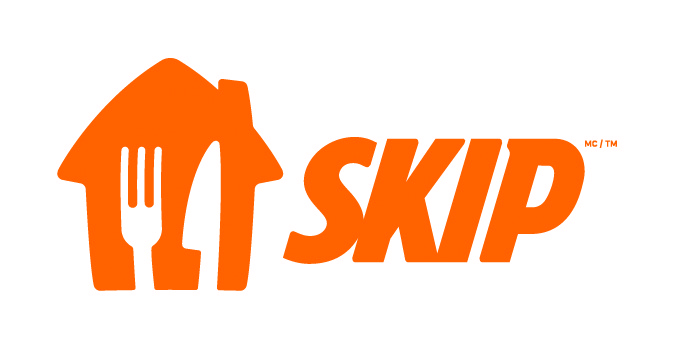The Delivery Revolution: Navigating Canada’s Evolving Foodservice Landscape
The pandemic transformed Canada’s food delivery landscape, ushering in the age of delivery with online orders increasing by 36 per cent1 in the first year. This surge reshaped not only how Canadians eat but also what they expect from their dining experiences. Notably, alcohol delivery saw relaxed regulations across most provinces, a shift some have made permanent, recognizing the blend of necessity and astute advocacy that drove these changes.
Even as restaurants welcome patrons back, the reliance on third-party delivery platforms persists, driven now more by convenience than necessity. In 2023, 25 per cent of Canadians dined out at least once a week,2 exploring new restaurants and foods, and enjoying the ease of repeated orders, which now extend beyond restaurant meals to include meal kits and groceries—one of the strongest rising segments of the third-party delivery market.
Generation Z is at the forefront of this digital dining revolution, leading in frequency of online orders and showing a marked preference for sustainable dining options—from eco-friendly packaging to ethical food sourcing.
The convenience and reach offered by delivery platforms have proven invaluable, allowing restaurateurs to expand their customer base with minimal effort and by pass the hefty startup costs of traditional delivery services. This shift enables operators to focus on what truly matters: food quality and customer experience.
Of course, there are also some disadvantages, the most prominent being high service fees. Already squeezed by rising ingredient and labour costs, operators are understandably hesitant to lose up to 30 per cent on each order. The lack of control once an order leaves the premises is also a concern—delays and disruptions are often unfairly attributed to the restaurant rather than the delivery service.
Looking ahead, industry experts at Technomic forecast a more stable growth trajectory for the foodservice sector post the turbulent recent years. Their “2024 Global Restaurant Trends Forecast “3 and “What’s in Store for 2024 in Canadian Foodservice”4 reports highlight key trends:
Territorial Shifts: Takeout and drive-through services are set to encroach on traditional delivery zones.
Meal Timing: As dinner sales decline, the popularity of breakfast and brunch is expected to rise.
Tech Integration: Ongoing enhancements in technology will further integrate kitchen operations with online ordering systems.
Spending Power: Generation Z is projected to account for over a quarter of demographic spending, leading the charge in consumption trends.
As Canada grapples with economic uncertainties and the impacts of climate change, the evolution of delivery services continues to offer a window into the future of dining, promising a blend of innovation and convenience tailored to the Canadian palate.Third-party delivery companies are enhancing support for restaurants to maintain a mutually beneficial relationship, as their success is closely tied to that of the dining establishments they serve. The highly competitive nature of the delivery market compels these companies to offer better terms and more sophisticated programs to attract and retain restaurant partners. Additionally, consumer demand for ethical practices, regulatory pressures, and the economic
impact of the pandemic on the restaurant industry motivate delivery companies to provide more substantial support. These efforts not only improve their public image and compliance with potential regulations, but also secure a stable supply of partners crucial for their operational model.

Skip Offers Exclusive Partnerships & Invests in Recognizing Women in Foodservice
According to Skip, more than half of Canadians use their delivery app. Commonly known as “Skip”, the homegrown delivery platform was founded in Saskatoon in 2012. Currently Skip has offices in Winnipeg, Calgary and Toronto, and every day they connect Canadians to over 50,000 restaurant partners in Canada, including a growing offering of groceries, retailers, alcohol and convenience stores from coast to coast.
Skip also connects with their restaurant partners, several of whom they invited to RC Show 2024 to share their unique business models and the experiences and successes they’ve had through
partnerships with Skip.
A single source of truth
Kirk Baker is the owner of Baker’s Jerk, a Caribbean eateryencompassing two restaurants, three food trucks and soon, a 6,000 square foot warehouse. Their new space will largely be dedicated to the production of their famous Jamaican House patties.
Kirk and his wife Diane began their Brampton, Ontario-based enterprise in 2007. Leaders in the field, they give back to the community by mentoring high-school co-op students. The winner of multiple JerkFest competitions, Baker’s Jerk now has an exclusive delivery partnership with Skip. “I’ve tried other delivery companies,” says Kirk, “But they don’t compare.”
With only one platform to navigate, Kirk can concentrate on his business. “Working with Skip gives me the chance to focus on my product, and to connect with Skip one-on-one. Problems get solved very quickly.” Customized support from his account manager, who has a background in restaurants, has created an honest and meaningful relationship. “They work with me on promotions, which can be very fun to do. I recently had a two-week promotion. At the end of it, my bank app amazed me.”
Changing the game
Oren Borovitch grew up in the foodservice industry, working for and managing his family’s foodservice businesses. “I worked pretty much every position,” he recalls. After a stint as a restaurant strategist with a delivery company, Oren co-founded Kitchen Hub, Canada’s first virtual food hall, with partners Mat Abramsky and Adam Aremeland in 2019, opening their first location in Toronto’s Liberty Village neighbourhood. “We were looking for a way to make takeout simple and delivery more exciting.”
Well-known brands share customized kitchen space in three locations—they have since opened in Castlefield and Maple, Ontario—while Kitchen Hub handles operations and front-of-house. Skip helps Kitchen Hub provide order transparency, to ensure that the customer experience comes first. Skip also provides invaluable data to drive strategic planning for the future, Oren points out. “We can ask Skip ‘Where are customers not being served?’, and our next location will come from the data.”
Oren’s goal is to help restaurant operators succeed in the digital economy. “I know it’s challenging to make a profit in foodservice,” he says, acknowledging that Skip is, and will continue to be, a central part of Kitchen Hub’s growth strategy.
Sharing the stage
Skip also recently partnered with Women’s Executive Network (WXN) to launch a new category in Canada’s Most Powerful Women: Top 100™ Awards. The SkipTheDishes Food Industry Award will celebrate outstanding women in foodservice and shine a spotlight on the many talented female chefs, restaurateurs and entrepreneurs in the sector who demonstrate resilience, entrepreneurship and excellence.
The award will both acknowledge women in leadership roles and inspire others to pursue similar career paths. Melanie Fatouros-Richardson, Vice President, Communications and Government Relations at Skip, is proud of the difference the company will make. “We’ll show young women what’s possible, while also helping to pave a future where there are greater opportunities for women in leadership in the food industry.”
Making it work
Restaurant operators can find significant advantages by partnering with Skip. Tailored to each individual business model, these collaborations streamline operations by consolidating delivery services into an efficient platform, reducing overhead and simplifying logistics. This focused approach not only enhances operational efficiency but can also lead to fewer errors and better customer service.
Already this year, Skip has invested over $851,000 across their network of independently owned restaurant partners to help them achieve their business goals, offering subsidiary programs such as their BOGO and $ Off promo campaigns operators can activate directly from their dashboards. These promotional supports have emerged as one of Skip’s competitive strengths, and also include preferred listing in searches to help attract a larger customer base. Skip’s advanced data analytics provide valuable consumer insights to help restaurants engage new audiences through tailored menus and marketing strategies designed to boost profitability and intersect with the evolving tastes and
preferences of their customers.
The Third Stakeholder: The Delivery Driver
All three entrepreneurs agree that delivery drivers are the third stakeholder in the takeout/delivery relationship. Customers don’t have a view into where and when any mistakes were made in the delivery process: more to the point, they don’t care. Which means drivers, in essence, are a surrogate for restaurant staff.
“We realized the experience drivers had with us translates down to the customers. So now we treat our drivers like customers too.”
– Eric Chow
“Drivers are an essential piece of the pie. They want to get in and out as fast as possible, so we’re working on things like parking, designated spots, and making them comfortable.”
– Oren Borovitch
“Skip drivers are quite professional; we do what we can to accommodate them. We make a separate lineup for them, so drivers don’t have to struggle through crowds. Since we use only Skip, we can build a relationship with Skip drivers.”
– Kirk Baker









